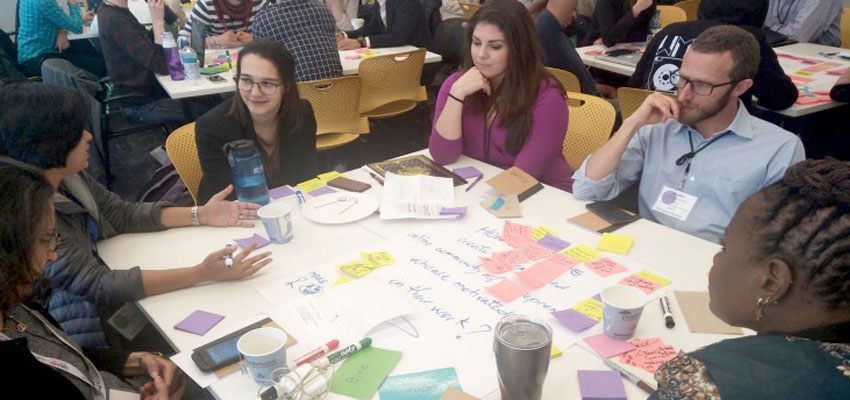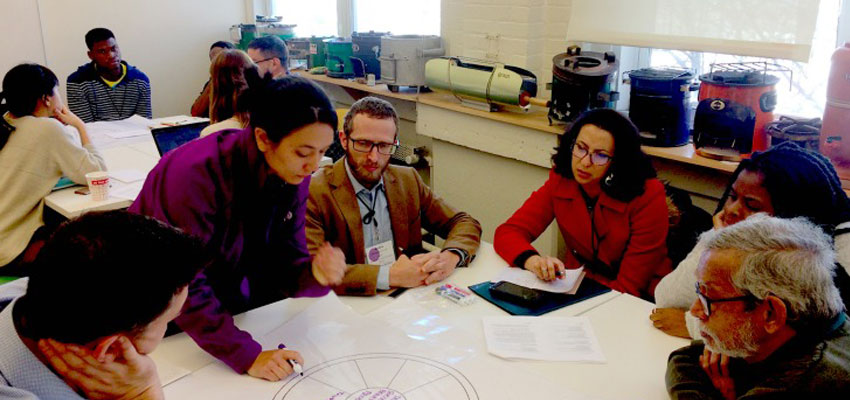
During the week of April 16th 2018, MIT D-Lab brought together members of its industry alliance and two groups of D-Lab fellows. For attendees, who came from all corners of the globe, the convening was an opportunity to connect with, collaborate, and learn from others who are committed to creating social impact through business approaches to poverty alleviation
The Collaboration Café, a day-long event during the retreat, brought together Practical impact Alliance members, Scale-Ups Fellows, and Innovation Ecosystem Builder Fellows. The event started with a welcome from MIT D-Lab Founding Director, Amy Smith. In order to break the ice and promote an interactive, collaborative work environment, the event started with an activity of building “human histograms,” for which attendees formed groups according to mutual interests and got to know each other. Amy also introduced MIT D-Lab’s goals and philosophy of design as a form of development that goes beyond the products that are developed and pointed to the power of the co-creative process.
For most of the day, we worked in groups on problem framing and ideating around some of the big challenges faced by many of the fellows in the room. The challenges were suggested by participants in advance of the convening, and included “diversifying successful growth strategies for base-of-the-pyramid market startups,” “creating strategies to address the weak demand of socially beneficial products,” “supporting, educating, and connecting entrepreneurs effectively online,” and more.

Within each group, people from across all the programs had their own experiences with the assigned challenges, albeit slightly different perspectives based on their different contexts. Therefore, the problem framing time in the morning was crucial for developing a shared understanding of the topic and language to describe it. Some groups decided to adapt their area to more closely suit their interests, others shared personal experiences with the challenge as a way to bridge contextual differences. This discussion happened around the framework of “problem wheels” that enumerated the different challenges, opportunities, benefits, or effects. The morning session culminated in creating “how might we” statements that succinctly expressed which components of the challenge the team was planning to focus.
After a lunch break with time to network and socialize, we jumped into the ideation phase of the design process with the goals of fostering a safe, playful, creative environment. We used different frameworks to encourage out-of-the-box thinking, with the goal of building off others’ ideas. Between each round of brainstorming, a few team members moved between groups following the World Café Facilitation Method to introduce new ideas and perspectives to each table’s challenge.
By the end of the day, teams regrouped to combine and transform all the ideas from over the course of the activities. Each team chose three to four of the top ideas, often formed from a combination of different ideas and perspectives from people all around the room, and shared them with the whole group.
It’s possible that some of these ideas may be brought home and implemented by some of the attendees. More important, the conversations during the scaffolded activities were vehicles for sharing experiences and advice. The Collaboration Café was a first step to build connections between cohorts, expose groups to MIT D-Lab design methodology, and begin to lay a foundation for potential collaborations throughout the coming year.
-----------
Anisha Nakagawa is an undergraduate studying electrical engineering and design at Olin College, and is a monitoring and evaluation intern at MIT D-Lab.

